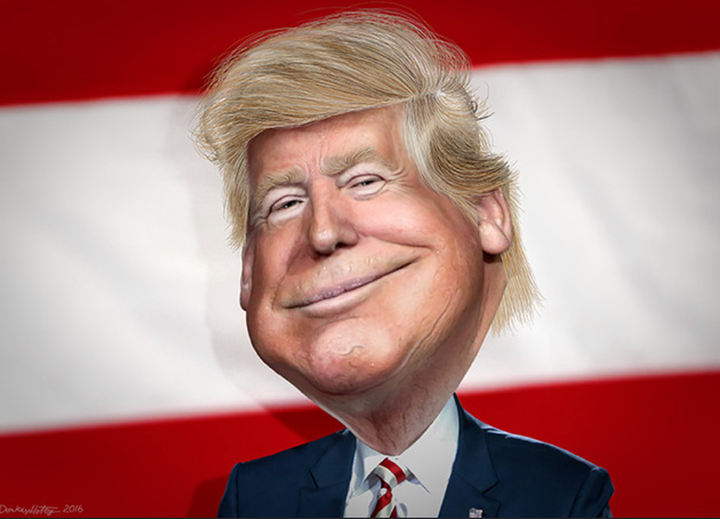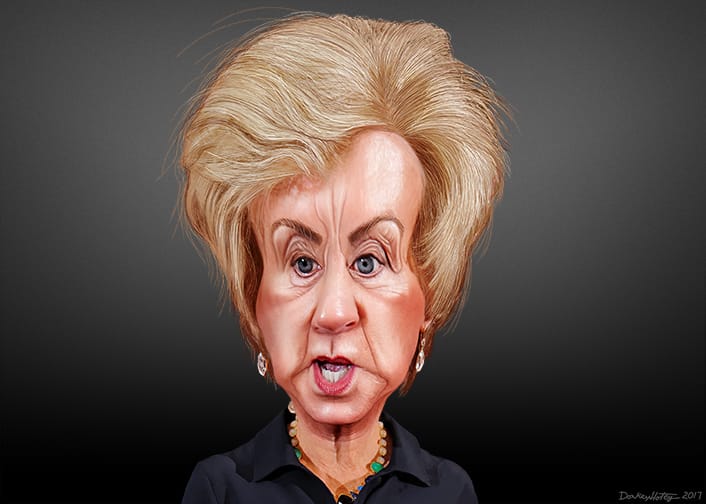Trump, 80s Nostalgia, And The Rejection of Fascism
Yearning for the 1980s lies at the heart of the fascist project, whether millennials and Gen X-ers like it or not

At my most depressed I found myself playing a miniaturized Atari arcade game and listening to 80s pop hits while getting drunk on Miller Lites and Fireball.
That was in 2015, just before a lengthy struggle with insomnia and all its related mental and physical horrors. It was in the lead up to that dark period that I reached back to a bygone era that I had never really experienced – I was only six years old by the end of the 1980s – and pieced together nostalgia for a past I did not remember. Call it borrowed nostalgia.
Thanks to all those who support BFT. Consider subscribing for $3 or $5 a month, or leaving a tip!
I spent many nights, after putting my son to bed and after my wife had retired for the night, playing with this stupid little arcade setup and playing a careful-curated 80s playlist and drinking enough booze to convince myself I was having a good time, here with all my friends, who were just out of frame. I didn’t think much of it at the time. It was my wind-down time after a busy day of working and parenting and whatever else you do in your early 30s that offers an excuse to get loose with three or four or six ice cold Millers, which, naturally, came in a throwback 80s-style can. My commitment to reconstructing a good time in 1985 was total.

It wasn’t, in hindsight, the first time I had retreated to the 80s amid in a depressive state. Fourteen years earlier, after graduating from a tiny Baptist high school and arriving at the sprawling University of Maryland College Park campus, I struggled to adjust in every conceivable way. Like I would many years later, I sought comfort in old school video games and music. I bought not one, but two Atari t-shirts. I bought too-tight jeans and cut holes in them and bought the same Converse sneakers I had worn in elementary school. I grew out my hair and combed it like an 80s teen movie villain. I would not take no for an answer when pitching an article to the editor of the university paper, The Diamondback, about the comeback of 80s style on campus (I interviewed an elderly sociology professor for the piece who told me he had no idea what I was talking about, the 80s had just ended).
Freshman college me did not (could not?) face the present and all its terrifying changes and new expectations. So I ran. I ran so far away, I just ran, I ran all night and day. I couldn't get away. Things of that nature.
My 2015 retro obsession went beyond terrible little Atari games and the beeping and booping of soul-dead 80s pop music. I watched an endless stream of 80s movies, mostly horror, some comedies, the occasional crime drama. I read horror novels from the era. I told myself (and others) that I only wanted to find some good art that had come out of a decade that largely marked the end of challenging, worthwhile popular art. And while I found some albums and movies that I believed qualified as artful, my decision – whether conscious or unconscious, I don’t know – to surround myself with the trappings of a long-past era was undoubtedly a product and a driver of my depression.
It makes sense. Only depression would seek something long dead.
I chose to look back, to a past I had not lived, rather than be present or to consider the future. Maybe there was happiness back there, I thought. Maybe, if I recreate the reality that seemed to make people in the 1980s so bubbly and bright and happy, I too could achieve happiness. My friends, when they came over to play cards or hang out by a fire pit, would ask if we could listen to something else, something not-80s, maybe something with a guitar instead of some unholy combination of keyboards and synths. When we’d watch a movie, my buddies would ask kindly if we could for once watch something current. Sometimes directly, sometimes in a roundabout way, I would say no, absolutely not. I protected my retro reality with the fierceness of someone who did not want to live in the present.
There were of course personal issues that I dealt with during this time. I’m not going to get into those here, but I very much recall a sense of reaching a societal breaking point in the final months of the Obama era. Everywhere you looked, there were signs that our slowly but surely fragmenting reality had eroded the post-war order and opened a door for something wicked, something malignant to enter the body politick and undermine everything we've known as Americans in the 21st century.
Though I could not imagine half the country rallying around a racist game show host promising to crush the American experiment, I sensed something dark in those days – something I had not felt even in the bleakest days of the George W. Bush administration. That this darkness would persist and spread like an all-consuming cancer over the next decade never crossed my mind. I considered it a temporary insanity, something that would fizzle. Cancer doesn't fizzle though.
I didn't realize that by trying to live in the past, I was feeding the fascist monster, for that monster wants nothing more than a return to a fictional and glorious past. For Donald Trump, that glorious era to be recaptured was indeed the 1980s, his heyday, his coming of age in the public eye as a domineering business mogul American psycho in a decade in which political and business leaders sought to erase both the gains the the existence of the tumultuous 1960s and 70s (Trump was recently asked if he had a favorite president as a child; he said Ronald Reagan).
It was the purpose of 80s culture and politics to erase that era of human freedom, to reach back to a less free and fair period, the 1950s, as a model for what should be. I’m hardly breaking news here: 80s music and movies and TV shows and everything that defined the era’s capitalist monoculture was dedicated to convincing Americans that they could return to the peace and prosperity of the pre-Civil Rights United States.
That this achievable peace was “the type of peace that stinks in the nostrils of the almighty God,” as Martin Luther King Jr. said in 1956, was not a part of the equation in recreating the 50s during the Reagan era. Americans in the 80s sought a negative peace, a peace by any means necessary.

And here we are, 45 years removed from Ronald Reagan’s election and the ushering in of democratic erosion at the hands of ever-expanding capital and its henchmen, with a living relic of the 80s on the precipice of once again becoming president and tossing aside any and all guardrails meant to ensure the life of our democratic republic.
Trump is the 80s personified. His wardrobe, his cultural references, the music he listens to while swaying like a senior citizen at a nursing home at his campaign rallies, it all screams 80s. He is the ugliness of the Reagan era come to bear, the haggard torchbearer of the Reagan revolution that promised to eliminate the 60s and 70s from the public consciousness through sheer force of will, a steady diet of right-wing media, and legislation and the appointment of judges dedicated to undoing the reforms that might have delivered a more free, more humane United States.
Through Trump, the American right reaches back to the 80s, thereby reaching further back to the horrors of mid-century America, a nation dominated by the evils of Jim Crow and institutional inequality that would make any 21st century authoritarian blush. The 50s, the 80s, the 2020s: These are all connected by one hideous strain of fascism and hatred and a burning desire to unravel democracy. Trump is the personification of this desire.
He must be rejected on Election Day. And we as a people, especially millennials and Gen X-ers prone to such intense nostalgia, must also reject the 80s, which I know you hate to hear, but that you must hear. It is essential in the fight against fascism.
Back To The Future No More
I know I'm not alone among millennials – the greatest generation – in recognizing the 80s as a deeply disturbing cultural era. I know this because I recall, during the COVID lockdowns of spring and summer 2020, folks in their 30s and 40s binging 80s movies to kill some time and find a little solace in a past that was worlds more preferable than the current moment of mass death and societal chaos and government inaction.
And I remember 80s kids posting about those movies on their social media timelines and realizing all at once how outrageously sexist and homophobic and racist they were. Every teen comedy from the mid and late-80s was rife was racism both casual and explicit. There were shocking levels of misogyny: Jokes about rape and sexual assault, about women being unfit for the workplace or to lead a household. I tried to watch a couple 80s comedies with my son during the lockdowns, and had to turn them off after a handful of racist and homophobic slurs in the opening minutes. These were no glory days.
To see these movies through 21st century eyes were to see the 80s for what they were: A time of creeping fascist thought that bled into almost every cultural landmark. Millennials and Gen X-ers realized during COVID that the 80s were actually bad.
The question of why I immerse myself in 80s shit at my lowest moments has occupied my brain for months now. I find myself theorizing about why a retreat from the present and a rejection of the future is my go-to in depressive episodes. The best I could come up with is as follows: I have looked to the 80s for comfort and a sense of normalcy and control, because in 1980s America there was a monoculture – dominated, of course, by white, heterosexual, conservative, hyper-capitalist orthodoxy. The mere existence of a monoculture that, for better or worse, linked us as a people – we watched the same movies, listened to the same music, experienced life in similar ways – offered a sense of control.
Politically, this is a problem for me. The desire for control lies as the bloody heart of fascism. Every fascist movement of the 20th century sought control over the populace, over women’s bodies, over the sex lives of queer folks, and over schools and businesses and every institution that existed within a nation’s borders. Total control, always through violence or the threat of violence, was the ultimate goal of every fascist group that came to power between the world wars, and so it remains the same today, with Trump’s coalition promising to take control over everyone and everything its base hates.
The internet-driven fragmentation of western culture has left us without the common bonds (however lacking and problematic) of the monoculture we had 40 years ago. This has left nostalgic weirdos like me to try to piece together the fragments of that long-gone culture and exist within it, if only for a little while here and there. This might feel good for someone born in the 70s or early 80s. This might soothe us. We remember the sensation of believing we understand the world, of feigning control over our existence.
This, for folks like me, is preferable to the anxiety and visceral discomfort of having no understanding of the world in the 2020s, where everyone lives in their own little curated reality made possible by our make-believe internet lives. We didn’t have this problem when I was growing up. Let’s get back there, the thinking goes.
This is the exact thinking of the American fascist movement. I saw a video during the summer produced by some right-wing think tank lauding the glories of the odious Project 2025 playbook, and in the video were snippets of major Hollywood movies from the late 70s to the late 80s, including clips of 80s films depicting pre-Civil Rights America. I can’t find that video now, sadly, but I recall seeing it and feeling a great sense of shame. This horrid, anti-human movement, I thought, needs people like me to keep yearning for the Reagan era. This pledge to bring back the Good Times – the pledge made by Donald Trump over the past decade – will always exist as long as people like me engage in this reconstruction of the dismantled monoculture that was created in large part to sweep away the memory of the fight for freedom that defined the 1960s. It dawned on me in one terrible moment while scrolling the timeline that I was in lockstep with the fascist pricks who made this I Love The 80s advertisement for fucking Project 2025.
It wasn’t long after seeing this video and reeling with self loathing that I turned on the Democratic National Convention and just happened to catch Angela Alsobrooks, the Democratic Senate candidate in my home state of Maryland, speak directly to me and people like me who romanticize the same decade that Trump has gleefully romanticized for years and years as the main character of humanity, in his bid to roll back the gains of the interceding decades.
“Ever since Donald Trump rode down that ridiculous escalator, we as a nation have felt trapped. Every national decision has been made in reaction to this one man and his extremist MAGA movement,” Alsobrooks told a raucous DNC crowd. I snapped to attention; these words resonated with me in a way other political speeches have not. “We are still frozen by the fear that Donald Trump might once again come to power. And it’s not just our politics that’s been trapped. It’s our imagination.”
Alsobrooks rightly called the 2024 election “our moment to leave Donald Trump where he belongs: in America’s past.” A Trump loss, I thought while listening to Alsobrooks, would be the final blow to 1980s dogma as the guiding principle of American life.
"Faith in the promise of America — faith in the American idea in the American values that we share. Faith that we, the people, can choose a new leader — and a better future — for the people," she said. "Faith that as dark as our days and challenges have sometimes felt, it’s always darkest before the dawn. We know that we can endure for a night because joy cometh in the morning. Morning is coming. Morning is coming.”
Alsobrooks said her father told her as a child that “your faith is stronger than your fears.” As hokey as that might sound to your jaded ears, it’s true. Our faith in a better future, a more stable and free United States, overwhelmed the fear of the radicalized American right this summer, and with the help of mockery – weird! – broke the fascist fever that has gripped us for so long. For a brief moment, we were able to see through the fog of fear cast by ascendant fascism. Our faith was not hampered by our fears, because faith in ourselves and the decent people of this country can never be snuffed out by fear. Trump and JD Vance and Tucker Carlson and the rest of the nation’s cavalcade of fascist goons will try to swamp us with fear, but they will fail.
Fascism, more than anything, yearns for the void. We don’t have to follow them into it. We have that choice, and rejecting the logic of a backward decade that fascists love dearly is part of that choice.
We can have morning in America. Not that kind of morning in America. A good kind. The kind that throws off the chains of a toxic era defined by its longing for a negative peace. A morning that rejects the 80s, and therefore the 50s, and therefore the ghosts of the historical horrors that linger over us, waiting for us to concede to its awful whims and let it rule over us forever.
To the past, to Trump, to the 80s, I say no more.
Follow Denny Carter on BlueSky at @cdcarter13.bsky.social



Comments ()